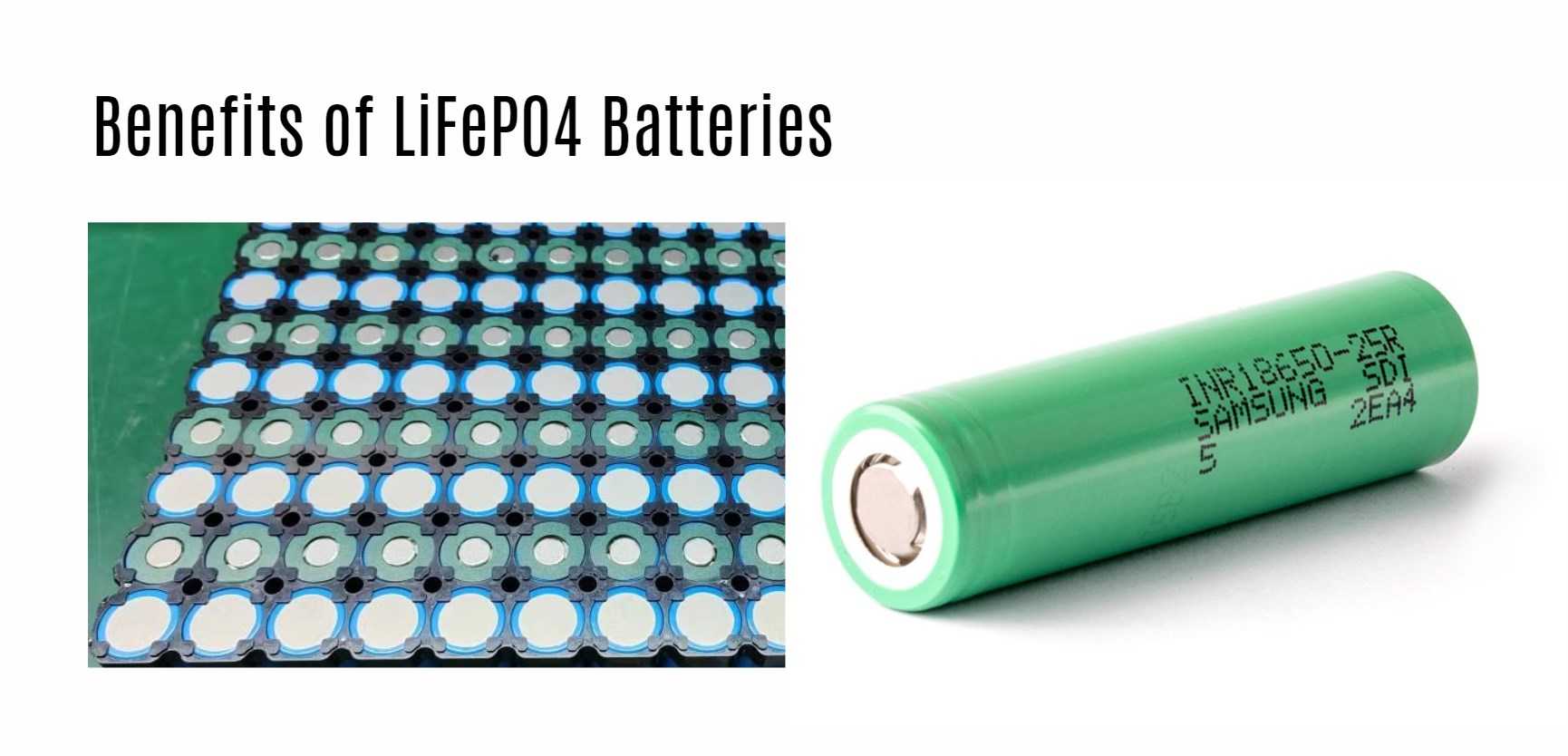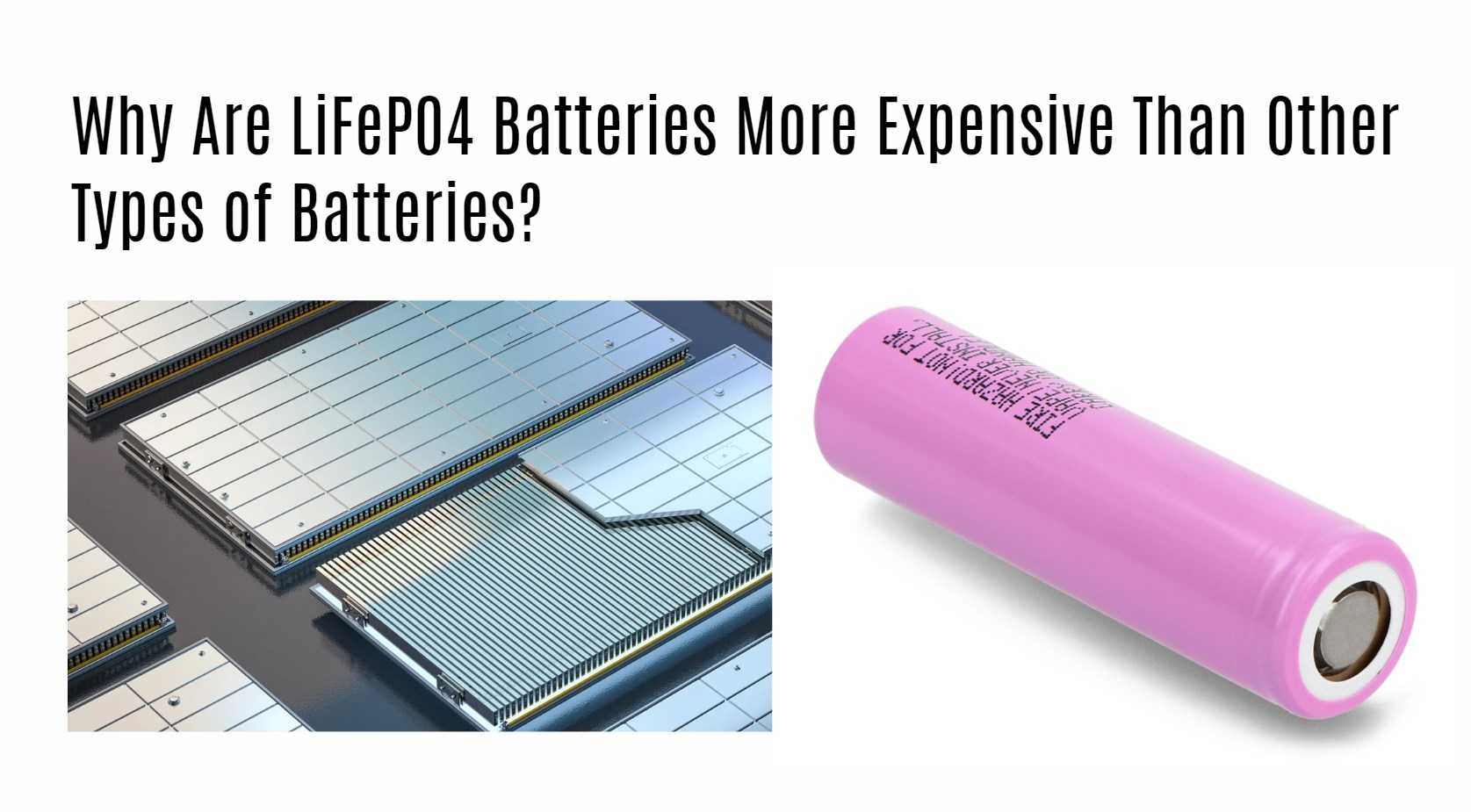Welcome to the world of energy storage solutions! In today’s fast-paced technological landscape, batteries play a crucial role in powering our everyday devices and sustainable energy systems. One innovative player in this field is the LiFePO4 battery – known for its exceptional performance and longevity. However, have you ever wondered why LiFePO4 batteries come with a higher price tag compared to other types of batteries? Let’s dive into the fascinating world of LiFePO4 technology to uncover the reasons behind this cost disparity and explore why investing in these advanced batteries could be a smart move for both individuals and industries alike.
Comparison with Other Battery Types
When it comes to comparing LiFePO4 batteries with other types of batteries, the differences are quite evident. Traditional lead-acid batteries, for example, are known for their low energy density and shorter lifespan compared to LiFePO4 batteries.
On the other hand, lithium-ion batteries may offer higher energy density but lack the durability and safety features that LiFePO4 batteries provide. Additionally, lithium-ion batteries have a higher risk of thermal runaway due to their chemistry.
LiFePO4 batteries stand out for their stable chemistry, longer cycle life, and better thermal stability compared to other battery types. This makes them a reliable choice for applications where safety and longevity are crucial.
In terms of cost, while LiFePO4 batteries may have a higher initial investment compared to lead-acid or lithium-ion alternatives, the long-term savings from their extended lifespan and lower maintenance requirements make them a practical choice in the grand scheme of things.
The Chemistry Behind LiFePO4 Batteries
When it comes to understanding the chemistry behind LiFePO4 batteries, things can get a bit technical. Let’s break it down in simpler terms. The “Li” stands for lithium, which is known for its high energy density. This means more power in a smaller package.
The incorporation of iron (Fe) and phosphate (PO4) into the battery’s cathode structure enhances stability and safety during charging and discharging cycles. Phosphate also helps prevent thermal runaway, making LiFePO4 batteries less prone to overheating or exploding.
Unlike other types of batteries that may contain toxic materials like cobalt or lead, LiFePO4 batteries are considered more environmentally friendly due to their non-toxic composition. Additionally, they have a longer lifespan thanks to their stable chemical structure.
In essence, the chemistry behind LiFePO4 batteries plays a crucial role in their performance and reliability as a sustainable energy storage solution for various applications.
Benefits of LiFePO4 Batteries
LiFePO4 batteries, also known as lithium iron phosphate batteries, offer a range of benefits that make them stand out in the world of energy storage.
One major advantage is their impressive lifespan compared to other types of batteries. LiFePO4 batteries can endure more charge cycles without significant degradation, making them a reliable long-term investment.
Additionally, these batteries are known for their enhanced safety features. Unlike some lithium-ion alternatives, LiFePO4 cells are less prone to thermal runaway or combustion under extreme conditions.
Moreover, LiFePO4 batteries have a high energy density and excellent performance in terms of power output. This makes them ideal for applications requiring continuous and stable power supply over time.
Furthermore, environmentally-conscious consumers appreciate that LiFePO4 batteries are more sustainable than traditional lead-acid options due to their lower toxicity levels and recyclability.
In conclusion – the benefits of LiFePO4 batteries extend far beyond initial cost considerations; they deliver efficiency, reliability, safety, and sustainability for various energy storage needs.

Higher Initial Cost Explained
When it comes to the higher initial cost of LiFePO4 batteries compared to other types, there are a few key factors at play. The materials used in LiFePO4 batteries, such as lithium and iron phosphate, are more expensive than those found in traditional lead-acid or nickel-cadmium batteries.
Additionally, the manufacturing process for LiFePO4 batteries is more complex and requires specialized equipment, contributing to their higher price tag. These batteries also tend to have a longer lifespan and better performance overall, making them a worthy investment despite their initial cost.
Furthermore, the superior safety features of LiFePO4 batteries reduce the risk of overheating or fire hazards commonly associated with other battery chemistries. This added peace of mind is another reason why many choose to pay more upfront for these high-quality power sources.
In essence, while it may seem like you’re paying more initially for LiFePO4 batteries, you’re actually investing in a reliable and long-lasting energy solution that will save you money in the long run.
Long-Term Cost Savings and Durability
When it comes to investing in LiFePO4 batteries, thinking long-term is key. While they may have a higher initial cost compared to other types of batteries, their durability and longevity make them a smart choice for those looking to save money in the long run.
LiFePO4 batteries are known for their impressive lifespan, often lasting up to four times longer than traditional lead-acid batteries. This means fewer replacements over time, ultimately saving you money on maintenance and replacement costs.
Moreover, these batteries require minimal upkeep compared to other options. With a lower risk of thermal runaway and improved safety features, LiFePO4 batteries offer peace of mind while delivering reliable performance.
Their ability to withstand frequent charge-discharge cycles without significant capacity loss makes them ideal for applications requiring consistent power supply over an extended period. So while the upfront investment may be higher, the long-term cost savings and durability of LiFePO4 batteries speak volumes about their value.
Conclusion: Investing in LiFePO4 Batteries for the Future
LiFePO4 batteries may come with a higher initial cost compared to other types of batteries, but the long-term benefits they offer far outweigh this investment. Their superior performance, longer lifespan, and enhanced safety features make them a practical choice for various applications.
By understanding the chemistry behind LiFePO4 batteries and comparing them to other battery types, it becomes clear why they are considered a premium option in the market. The durability and efficiency of these batteries can lead to significant cost savings over time.
Investing in LiFePO4 batteries is not just about the present; it’s about securing a reliable power source for the future. Whether for renewable energy storage, electric vehicles, or backup power systems, choosing LiFePO4 batteries is a smart decision that will pay off in terms of performance and longevity. Embrace the technology of tomorrow today by opting for LiFePO4 batteries – your future self will thank you!
Related Posts
- Zapping the Voltage: A Simple Guide to Multimeter Testing for AAA Battery Voltage
- Will Voltage Affect Battery Performance?
- Will solid-state batteries replace lithium?
- Will Batteries Last Longer in the Freezer? Answers to Your Freezing Battery Myths!
- Will batteries last longer in the freezer?
- Why you shouldn’t charge your phone overnight?



